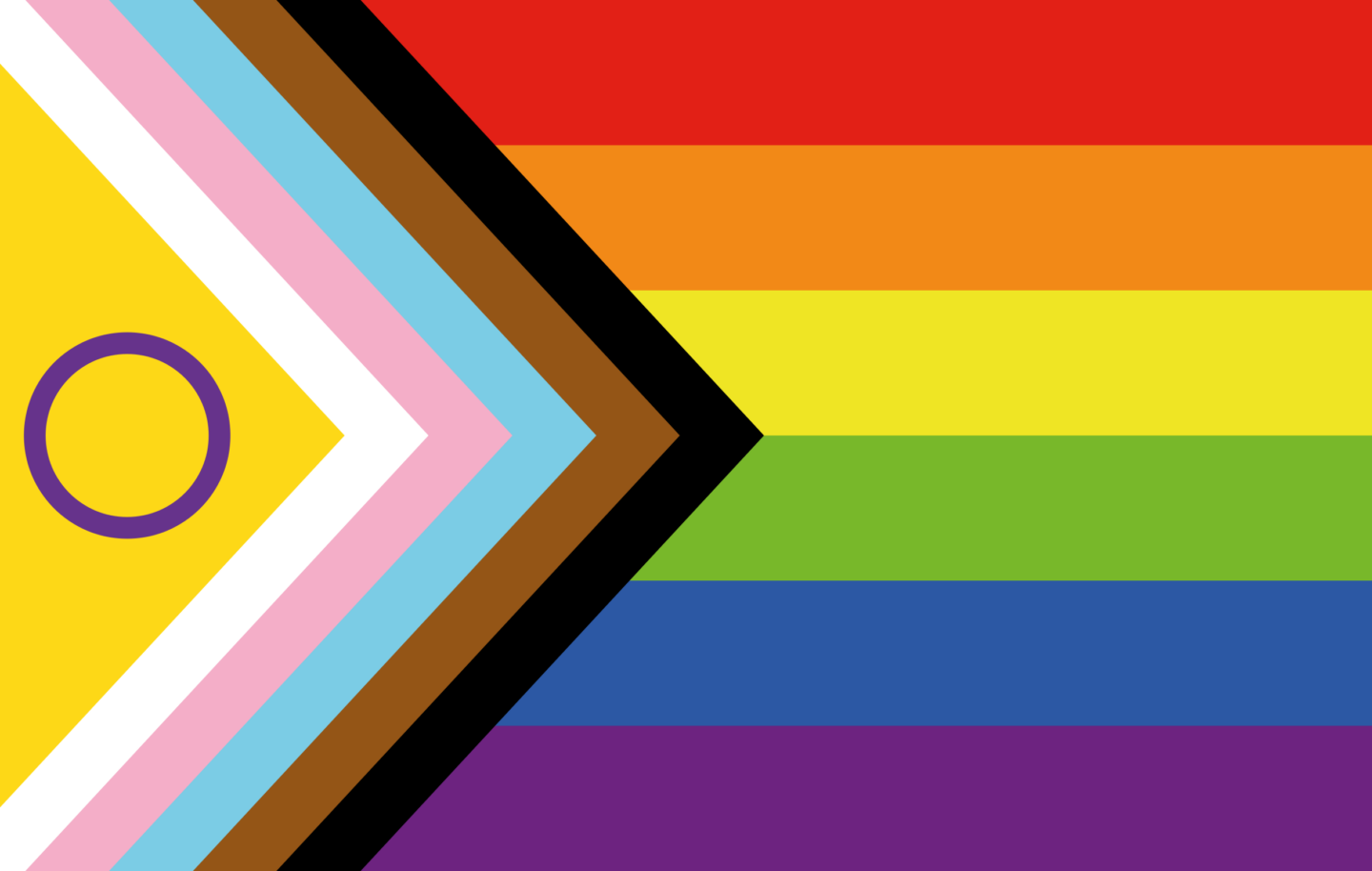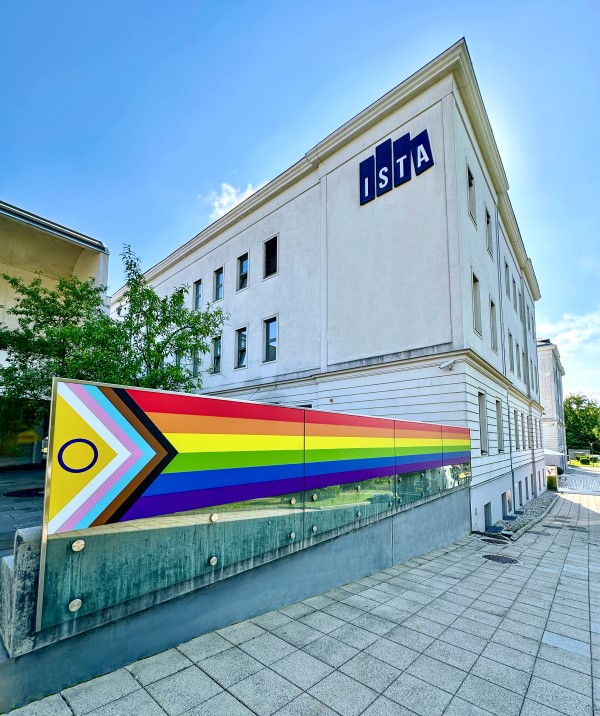June 1, 2023
Unfurling an Out and Proud Science
Queerphobia is no longer welcome in Science
This Pride Month, the Institute of Science and Technology Austria (ISTA) pledges its commitment to diversity as one of its core values.

Today, a large Pride flag is clearly visible for everyone to see, on the ISTA campus. With this flag, the Institute marks the beginning of Pride Month. It is more than a gesture—it symbolizes our vow to stand behind the wider queer community in science and take pride in our queer colleagues on campus.
As we move forward in our mission to raise queer consciousness in our campus community, it is important to first acknowledge the historic biases that must be corrected. As a modern institution dedicated to inclusive scientific research and technology, it is no longer possible to ignore the systemic marginalization of queer people at a global level that has been characteristic of the history of science.
Science Has Erroneously Justified Historical Biases
Only in 1977, the World Health Organization delisted homosexuality from its catalog of diseases. Even today, around the world, rhetoric based on science calls to question gender and sexuality-based identities. Both conscious and unconscious biases persist and adversely impact the lives of LGBTQIA+ persons among us. But these biases are losing their power and the ISTA community is committed to participating in this turning of the tide.
“Pride Month is a powerful reminder of the importance and value of diversity. It also highlights the ongoing struggle for rights and recognition that members of the LGBTQIA+ community have faced and continue to face. While there has been significant progress over the past decades, discrimination and violence against the community persist in many places and circumstances.
As allies, it is crucial that we demonstrate our support visibly and vocally, not only during Pride Month but every day. I invite all of you to celebrate diversity and to foster communities that are open, inclusive, and supportive. Communities that embrace these values are inherently stronger and better.
As the President of ISTA, I want to emphasize that our scientific community thrives on openness and the appreciation of diverse perspectives. Innovation and creativity flourish in environments where everyone feels valued and accepted for who they are. Let us ensure that the spirit of Pride—symbolized by the vibrant rainbow—shines brightly over the next four weeks and continues to illuminate our path throughout the year.” ISTA president Martin Hetzer explains.
Historically, science has been used to further the prejudices against LGBTQIA+ people that are entrenched in our heteronormative societies. Some examples are the assumption that all families are made up of one set of heterosexual parents, and the use of sex and gender interchangeably. “Corrective” medical procedures and other such regrettable atrocities on queer people were based on a foundation of science that that we have to acknowledge as bad and discriminatory science. There is no longer any room for such rhetoric in our institution and our wider scientific community. In 2022, not one but two queer parents were awarded the Nobel Prize. This is a sign that science is slowly but surely changing.
Taking Steps Ahead
At ISTA, we promote our scientists and the community to become more aware of their own biases and assumptions and to consider how these might impact the output and perception of our research. Our expanding Equity, Diversity, and Inclusion office is currently working on the design and implementation of appropriate queer-inclusive policies. As we do today, going forward the ISTA community will continue to stick by the ALBA Declaration of Equity and Inclusion as well as the European Commission’s Gender Equality Strategy 2020-2025.

A more inclusive and diverse scientific community is better equipped to address the complex challenges facing our society. This approach can lead to more nuanced and accurate scientific knowledge, which can ultimately benefit everyone and improve scientific research as a whole. It will lead to a better understanding of the world around us and better solutions to the grave challenges we face.
Moreover, we must also re-examine the notion of objectivity in scientific research. Science has long been seen as highly objective but in reality, it is influenced by the social and cultural context in which it is conducted. By valuing the diversity of identities and experiences, and expanding the range of questions, topics, and methods, we can work towards a more inclusive and accurate scientific society.
ISTA’s management recognizes that diversity without inclusion is a collection of missed opportunities, and commits to the inclusion of people with all sexual orientations and gender identities, while being aware of the intersectionality of identities. Queer people of color and transgender individuals face a double threat from racism and queerphobia. Acknowledging systemic queerphobia must go along with creating a space where these experiences are valued and included in our discussions inside the scientific institution.
“We are at a critical moment where we as a publicly and privately funded scientific institution must support inclusive scientific norms and practices. Please join me in envisioning science as a safe space—a prism through which each color of the rainbow can be seen for who they are,” Hetzer says.
Further Reading:
This Pride Flag is Designed For Intersex Inclusion
Styleguide for Trans-inclusive Communication from the Digital Transgender Archive
A guide to LGBTQ terms for the workplace
The Trans Language Primer
Deciding to change: An excerpt from the autobiography of a transgender scientist



